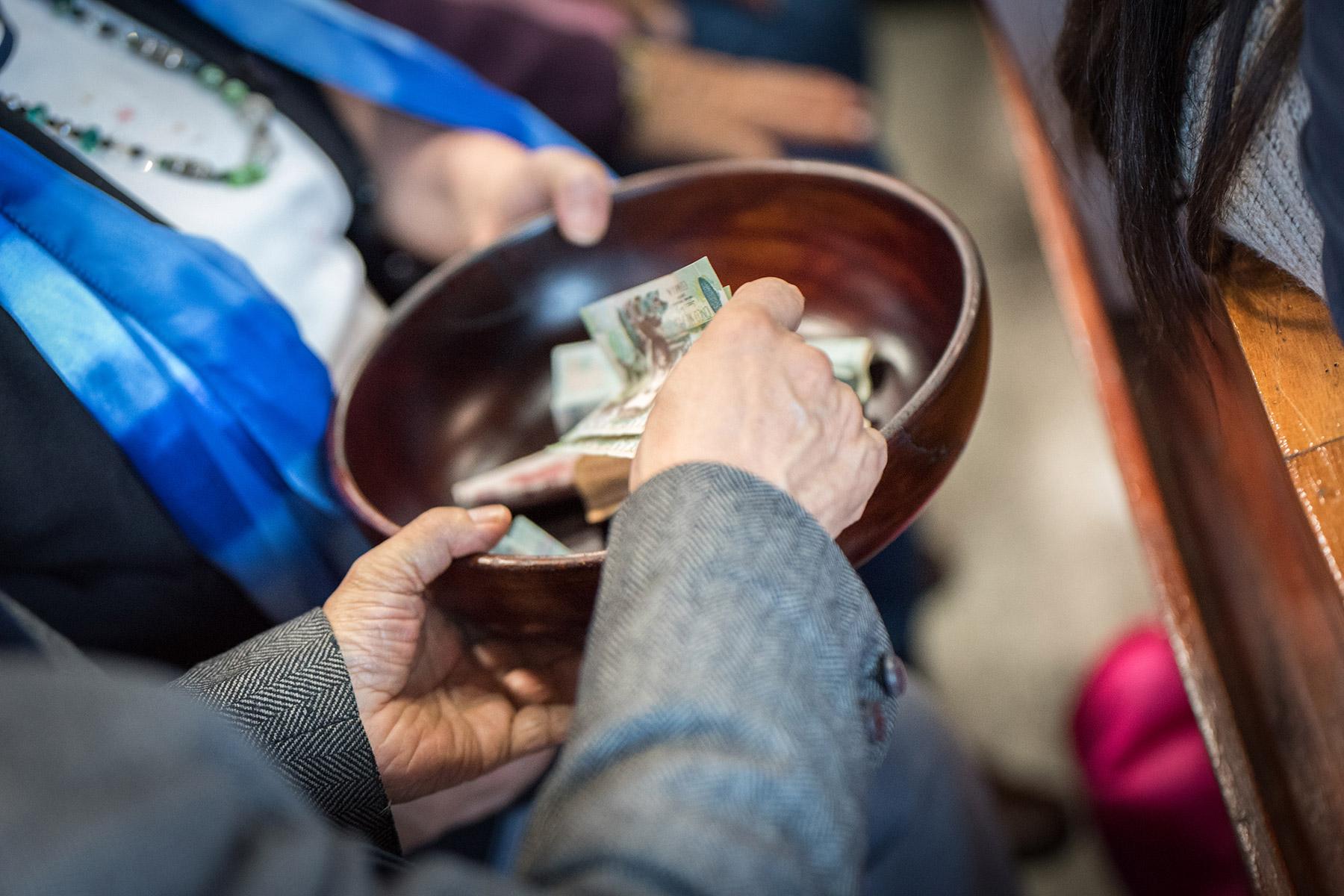Interfaith appeals for fairer economic system

Christian, Jewish, Muslim and Rastafari representatives discuss faith perspectives on debt relief, inequality, reparations and reconciliation. Photo: LWF
Webinar highlights Christian, Jewish, Muslim and Rastafari voices calling for action on Just Finance and Reparations
(LWI) - Just Finance is “not just about finance,” but also about values of fairness, equity, trust and honesty, therefore faith communities can bring a vital voice in the search for a more equitable global economic system.
At a webinar, jointly organized by the Lutheran World Federation (LWF), the World Council of Churches (WCC), the World Communion of Reformed Churches (WCRC) and the Council for World Mission (CWM), representatives of various faith communities spoke about the insights that their religious traditions offer on issues of debt, inequality, reparations and reconciliation.
The online discussion on 2 October, moderated by LWF’s Program Executive for Public Theology and Interreligious Relations, Rev. Dr Sivin Kit, was part of a process known as the New International Financial and Economic Architecture (NIFEA). Its goals include deepening interfaith cooperation in working towards a just and sustainable global economy.
Colonial legacy of commodification
Christian panelist, Rev. Dr Karen Georgia Thompson, Associate General Minister and Co-Executive for Global Ministries for the United Church of Christ in the United States, spoke about the need for churches to examine the ways they have profited from the colonial commodification and exploitation that lies at the heart of today’s economic and social inequalities.
It is hard to talk about financial debt, she said, without first considering the moral debts owed to those who suffered from “enslavement, manipulation of historic truths and lack of equality” during the centuries of colonial expansion by Western nations. “Extraction of human and natural resources from the African continent must be a part of the conversation about reparations,” she insisted.
Christian scriptures, she continued, are full of texts that speak about right relationships reconciliation, forgiveness and restitution. It is in these texts, she said, “that we need to ground these conversations about debt reduction and about restitution.”
Release from debt and slavery
Jewish speaker, David Krantz, a national science foundation fellow at Arizona State University’s school of sustainability, looked back to the ancient Judaic texts that inform contemporary discussions about what he called ‘Kosher Economics’. In particular he talked about the three concepts of ‘Interest’ or loans which are strictly prohibited in Judaism, ‘Release’ or sabbatical which is required every seven years and ‘Jubilee’ which is called for every fifty years.
These concepts of release from debt and slavery, for remuneration and redistribution of the land have inspired other faith groups, governments, and civil society organizations to produce initiatives such as the Jubilee campaign in the year 2000, Krantz noted. These ancient Jewish laws, he said, “are still both relevant and radical today” and should form the basis of efforts to reform our currently unsustainable capitalist system.
Muslim participant Yusuf Jha, a trainee mufti at the Abu Dhabi-based General Authority of Islamic Affairs and Endowments, asked how “our theological perspectives can be translated into actual policies and practices that really make a difference” in economic decision-making. He referred to the book ‘Debt: the first 5000 years’ by the late David Graeber who explores the ways in which “gift-based economies” worked within ancient societies. These primitive economies functioned as a form of credit network, Jha explained, and were examples of a real “free trade and free market” society in which being in debt “was a way of cooperation and relationship” with others.
Trade as cooperation, not exploitation
“Money has been created to be circulated,” he continued, but “when you start hoarding, you facilitate a destructive paradigm for yourself and your environment.” Today, he said, we face a choice of returning to that vision of trade as a form of cooperation, or continuing to view it “in a format of enmity, alienation and separation.” He compared the current “growth mania” of capitalist economies to the “logic of the cancer cell which has to grow to survive” yet destroys the body in that process.
Rastafari panelist, Dr Jahlani Niaah, a lecturer at the Institute for Caribbean Studies in the University of the West Indies, picked up the themes of financial exploitation in the context of the COVID-19 pandemic, “with money being one of the carriers of the virus.” He spoke of the origins of Rastafarianism which emerged in the 20th century “to channel and facilitate post-colonial transformation of peoples dehumanized by the combined oppression of church and state.”
Solidarity with the most vulnerable is a must, but systemic change is even more urgent in the light of the Covid-19 pandemic.
Pointing to the “dissonance between knowledge and a willingness to undertake appropriate action,” Niaah stressed the need for reparations to resolve contemporary problems of racism, poverty, conflict and social inequalities. He denounced the way that loans are given and “interest used to shore up capitalist economies,” noting that the developing world “has never had a Marshall Plan where America provided funds to Europe” to rebuild and retain its respectability.
Reflecting on the webinar, LWF moderator Sivin Kit said: ”I believe we have been thoroughly challenged to look critically at the relationship between own faiths and the negative impact of the current financial system on the poor. We are invited to hear the cry of all who are enslaved by debt.” He concluded: “Solidarity with the most vulnerable is a must, but systemic change is even more urgent in the light of the Covid-19 pandemic.”



